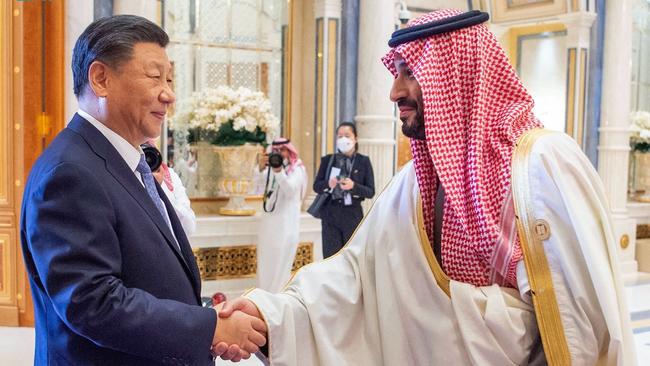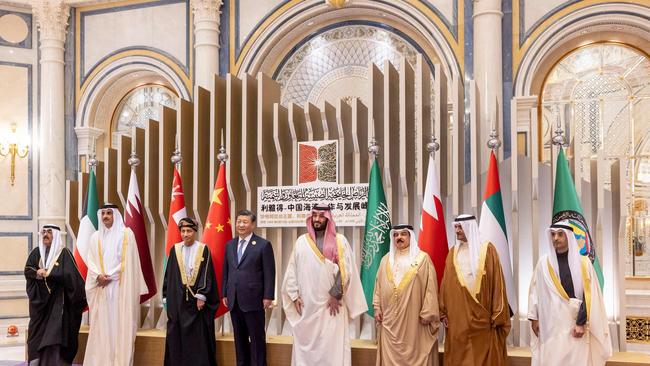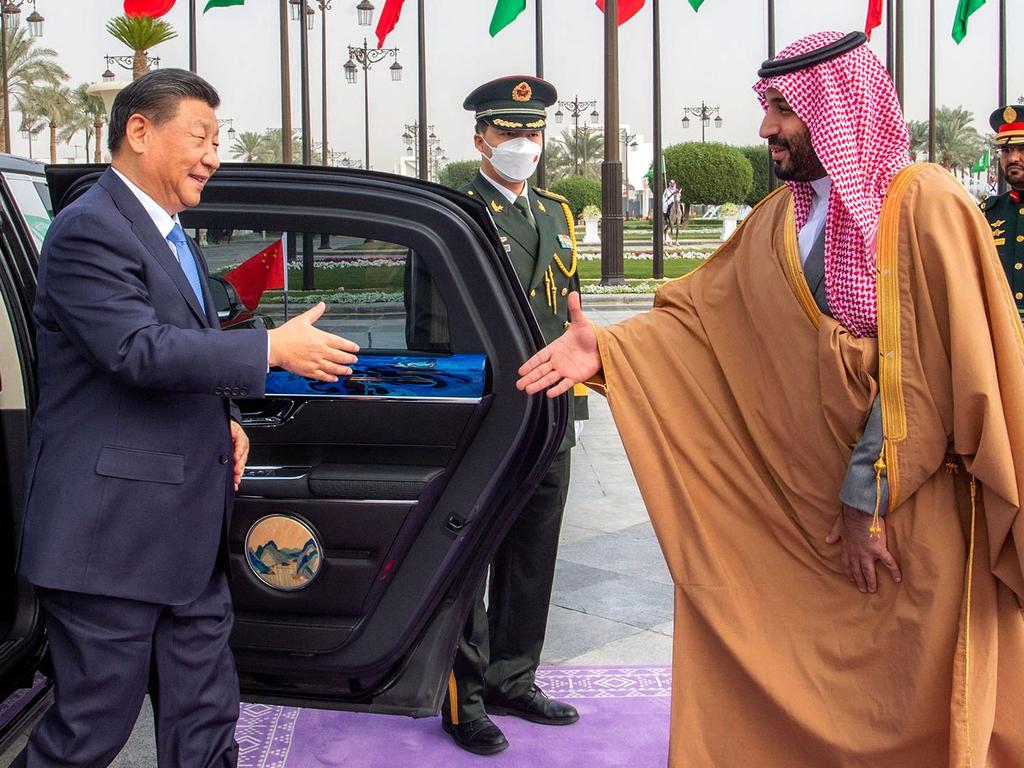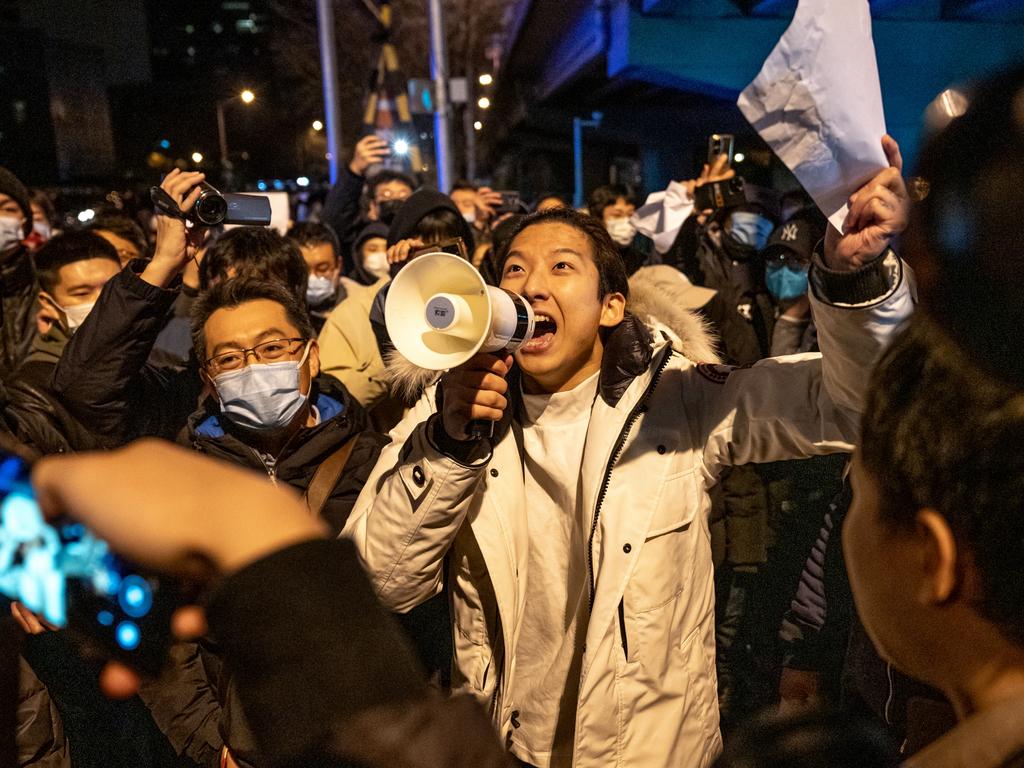China’s Xi Jinping pledges more energy deals with Gulf producers
Chinese leader uses Saudi visit to promise to buy more Gulf crude — and start paying for some of it with its own currency.

Chinese leader Xi Jinping has used the last day of a visit to Saudi Arabia to pledge more energy deals with big Gulf oil producers, promising to buy more crude and start paying for some of it with Chinese currency.
Using the Chinese currency, the yuan, for oil deals would chip away at the supremacy of the U.S. dollar, which used in most oil contracts around the world and underpins most Gulf state currencies. The Saudis and the Chinese accelerated talks around yuan purchases earlier this year as ties between Washington and Riyadh came under strain, The Wall Street Journal has reported. The Saudis on Friday declined to confirm they would carry out yuan oil deals.
China will “continue to import large quantities of crude oil from the GCC, expand imports of liquid natural gas, strengthen oil and gas upstream development, storage, transportation and refining co-operation,” Mr. Xi said Friday during a summit of the six Gulf Cooperation Council countries. He said it would use the Shanghai Petroleum and Natural Gas Exchange — a national energy trading centre — to “carry out yuan settlement of oil and gas trade.” Talks between China and Saudi Arabia over yuan-priced oil contracts have been off and on for six years, starting before the kingdom’s Crown Prince Mohammed bin Salman made his first official visit to China in 2016, the Journal has reported. It is possible the Saudis could still back off from an idea that would likely cause a new rupture in relations with the U.S.
“I don’t know anything about it,” Saudi Foreign Minister Prince Faisal bin Farhan told reporters when asked about Mr. Xi’s comments.

The Chinese leader’s meetings with Arab leaders were billed by both sides as a milestone for relations with the Middle East. His trip came as longtime American partners in the Middle East, such as Saudi Arabia and the United Arab Emirates, strengthen ties with U.S. rivals amid a global reshuffling of power accelerated by the Ukraine war and heightened tensions under the Biden administration. Amid a perception the U.S. is no longer interested in the region, Saudi Arabia and the U.A.E. in particular have tried to forge a foreign policy more independent of American influence.
The energy-rich region is witnessing growing competition between Beijing and Washington, long the region’s dominant security force. Analysts say China, a top economic partner for many Arab countries, isn’t trying to replace the broad American role in the Middle East, but is betting that its hands-off approach to local domestic politics will resonate in a region that bristles at what it considers U.S. moralising on human rights.
Formal relations between China and Saudi Arabia, first established in 1990, are rooted in energy and trade. China is already Saudi Arabia’s top trading partner and the biggest buyer of its crude. Even as the world looks to renewables, those energy ties are expected to accelerate, with the last barrels of oil likely to come from Saudi fields and be consumed in Asia.
China’s oil imports have swelled over the past three decades, reaching more than 25% of the oil that Saudi Arabia exports just as U.S. imports plummeted. It would be a profound shift for Saudi Arabia to price even some of its roughly 6.2 million barrels of day of crude exports in anything other than dollars. If priced in yuan, China’s purchases would boost the standing of its currency.
China introduced yuan-priced oil contracts in 2018 as part of its efforts to make its currency tradeable across the world, but they haven’t made a dent in the dollar’s dominance of the oil market. For China, using dollars has become a hazard highlighted by U.S. sanctions on Iran over its nuclear program and on Russia in response to the Ukraine invasion.
Saudi officials in favour of the shift have argued the kingdom could use part of yuan revenues to pay Chinese contractors involved in megaprojects in Saudi Arabia, which would help mitigate some of the risks associated with the capital controls over the currency. China could also offer incentives such as multibillion-dollar investments in the kingdom.
The two countries signed dozens of commercial agreements on Thursday, initially valued at more than $29 billion, in sectors such as clean energy, technology and manufacturing. Mr. Xi held talks with Prince Mohammed and signed a comprehensive strategic partnership agreement with Saudi King Salman, affording Riyadh top-tier status in China’s foreign relations.
On Friday, the Chinese leader attended broader meetings with regional leaders, where discussions touched on a long-awaited free-trade agreement and setting up a joint investment committee with the Gulf countries.
A refrain of the summits was noninterference in countries’ internal affairs. Arab states including Saudi Arabia — the home of Islam’s holiest sites — have publicly defended China’s policies in its western region of Xinjiang, giving cover to Beijing’s treatment of the Uyghur Muslim minority, and supported China’s position on Taiwan.
The West is scrutinising Mr. Xi’s visit for clues about Saudi foreign policy and China’s place in the Middle East.
Prince Faisal bin Farhan Al Saud, the Saudi foreign minister, brushed off repeated warnings from U.S. officials that certain types of co-operation with China would put a ceiling on Washington’s ability to co-operate with its partners in the region. “We are very much focused on co-operation with all parties,” he said. “We don’t see it as a zero-sum game by any means.” He said weapons deals hadn’t been discussed in Mr. Xi’s talks with Prince Mohammed. In recent years, China has sold drones, helped manufacture ballistic missiles and aided in the construction of a facility to fabricate uranium yellowcake — an early step along the path to developing a nuclear-energy program or nuclear-arms capability. The countries have discussed building a naval base on the Red Sea, one of the world’s most strategic waterways.
Mr. Xi said Friday that China would set up a nuclear security centre with the Gulf, without providing details.
Liyan Qi contributed to this article.
The Wall Street Journal






To join the conversation, please log in. Don't have an account? Register
Join the conversation, you are commenting as Logout